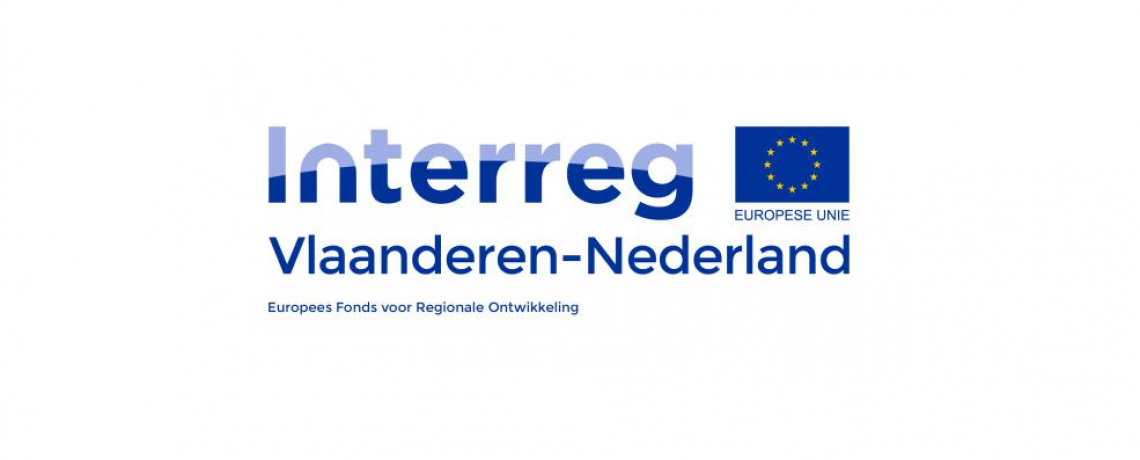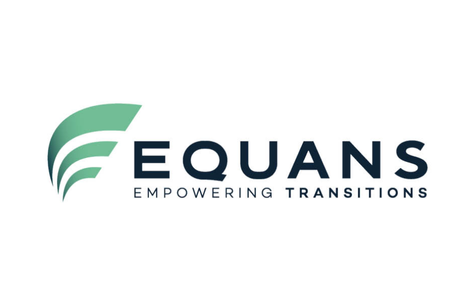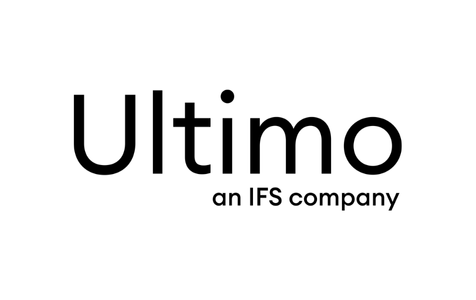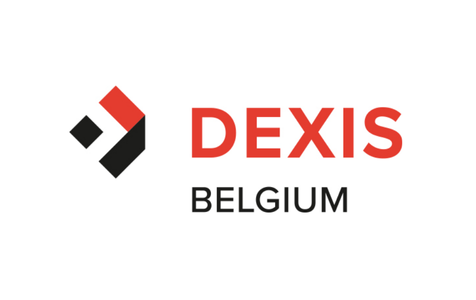Smart Tooling
On 1 June 2016, Interreg Flanders-Netherlands approved the 'Smart Tooling project'. Together with partners from industry and academia, BEMAS supports companies that want to collaborate on innovations in the field of Smart Tooling and Robots in the context of technical maintenance.
The Smart Tooling project has now ended with a virtual closing event on Thursday 19 November 2020.
Project results
Discover the project results of Smart Tooling in this brochure
In the process industry, machinery runs non-stop. Minute maintenance is therefore an important part of the operational management, certainly because of increasingly strict regulations in the field of safety and the environment. Smart Tooling' puts the focus on automation: by developing prototypes of robots and tools, maintenance can become safer, cheaper, cleaner and more efficient. In this way, the productivity of industrial maintenance is enhanced.
An example of this is robots that clean and inspect in locations that are difficult or inaccessible to humans. In Europe, robot technology is seen as an important development in the field of maintenance. Because robot technology is young, there are many uncertainties and possibilities that have not yet been explored or developed. This project provides a stimulus to SME companies in the border region that are developing robot innovations. For example, research is being done into inspection, cleaning and workplace robotics and drones. The latter type, 'the flying robot', is still in minimal use for inspections in the process industry. Thanks to its development, safety when inspecting the inside of tanks, for example, can be greatly improved.
The active involvement of knowledge institutions such as the University of Twente, a leading institute in the field of robotics, contributes to a direct stimulus for technological development of SME companies. Multinationals BASF and Dow Benelux act as test sites. The cross-border cooperation thus gives companies access to a wide range of expertise and infrastructure that is currently not or hardly accessible. This enables the exchange of best practices so that a sustainable anchoring of knowledge is guaranteed, also after the end of the project.
The Smart Tooling project was funded within the Interreg V programme Flanders-Netherlands, the cross-border cooperation programme with financial support from the European Regional Development Fund. More info: www.grensregio.eu.
about the Smart Tooling-project
Objective
The project aims to strengthen the process industry by working more cost-efficiently and safely. Research shows that there is a need for more than 50 concrete robot applications. SME's have the challenge to develop technological solutions together with knowledge institutions. For this purpose, Smart Tooling is looking for SME companies that develop technological solutions in cooperation with knowledge institutions:
8 service providers (large companies or SME) in the maintenance of process industry are engaged as project partners to facilitate research and testing at asset owners. A total budget of € 270,000 is planned for this group, 40% of which is subsidised.
16 SME companies are engaged as project partners for the actual development, engineering and construction of prototypes/proofs of concept. For this group, a total budget of € 1,400,000 is provided, of which 50% is subsidised.
32 companies are actively involved in the innovation clusters, but do not receive any financial support.
Applications
- 2D robots for example:
- Coating and cleaning large surfaces such as tanks, columns and towers;
- Inspection of surfaces and static equitment;
- Inspection and cleaning in confined spaces such as tanks, vessels and pipework.
- 3D robots for example:
- Development of applications for inspections in confined spaces;
- Development of applications for inspections of installations at height such as pipes, tank roofs, cooling towers and columns;
- Development of applications for inspections of installations at height, such as pipes, tank roofs, cooling towers and columns.
- Fixed robots for example:
- Fixed location for cleaning applications;
- Automated systems for inspection of installation parts;
- Automation of maintenance activities in workshops.
Financed by
Interreg Flanders-Netherlands is a European Union programme that focuses on cross-border cooperation and aims to strengthen and promote innovation and sustainable development within the border region. In these projects, companies, business associations, authorities, knowledge institutions and other organisations on both sides of the border work together to achieve concrete innovations.
For 2014-2020, Europe is providing over 152 million euros for the programme from the European Regional Development Fund (ERDF). The Smart Tooling project receives a subsidy from the Interreg Flanders-Netherlands programme.


Final results of Smart Tooling - Autumn 2020
Here you can read the final results of BEMAS' contribution to the Smart Tooling project.
At the closing event of Smart Tooling, BEMAS director Wim Vancauwenberghe gave a presentation about the sub-project on competence management:
View all presentations from the closing event.
Download the videos and project results.
On the progress of the Competence Management component
The Belgian Maintenance Association (BEMAS) was a Flemish partner in the Smart Tooling project. Developing innovative robotics for maintenance is one thing, but people remain central. Professionals must be able to work well with new technology. With its expertise, BEMAS brought structural clarity to the necessary competences.
"In Belgium, BEMAS brings together all parties involved in maintenance and asset management," says Wim Vancauwenberghe (director). "Our goal is to achieve optimal, or as we often say 'world class' management of assets."
Knowledge and skills
"In addition to our own activities, as BEMAS we consider it very important to contribute to external innovative processes. This always results in new insights and useful solutions, with the ultimate goal of widespread deployment in the industry. Through the Smart Tooling project, we can contribute to innovative robot applications. It is important, however, that people can work properly with these robots. If you stop and think about it, you realise that an operator of an inspection drone, for example, needs to have a lot of knowledge and skills to be able to carry out proper inspections in a chemical storage tank.
Good robot operators
Good robot operators ensure that the robots deliver quality work, safely and efficiently. This benefits both the asset owner and the service provider.
"Within Smart Tooling, together with the robot specialists, we have mapped out the necessary competences in detail. Many elements were in the heads of the developers and experts, but in order to pass on that knowledge and experience, it has to be on paper. That is why this was an integral part of the Smart Tooling project."
Learning outcomes
"The competences are described using a European methodology based on Learning Outcomes. In it we strive for an unambiguous description: a kind of uniform language to describe the necessary knowledge, skills and attitude for a particular task. Knowledge can be: knowing all the buttons on the control panel. A skill means handling the control switch. The third component, which really belongs here, is called attitude and maturity. How experienced are you? Can you do this task without supervision?"
Uniform approach
"The great advantage of such a uniform approach is that it provides concrete and verifiable insights and actions. Training providers can use this to develop customised training. And a company can perfectly use it to check to what extent its robot operators have the right competences."
Discipline
"Describing a competence correctly requires the necessary discipline. You have to formulate everything as concrete as possible. If you say: you have to be able to fly a drone for this job... Do you mean flying in a circle? Or flying steadily along a wall at a distance of five centimetres? Lay it down, that way you avoid discussions and you are unequivocal, wherever you are in the world."
Three projects
"We have detailed competences for three projects within Smart Tooling: Drones in confined riums, Smart Glasses and Cobot leak detection. The methodology we use only works if the tool is already being used in practice. We have come the furthest with drone inspections for wall thicknesses inside tanks. Terra Inspectioneering is already working on this. We can now structure all the competencies needed to carry out inspections using the drone. The company has also already defined three 'levels' for drone operators. That is very interesting for them, because they are a global centre of expertise where all kinds of people are trained."
"Smart Glasses for remote assistance is another example. There, too, we have come a long way. It all seems easy to walk around with such glasses, but there are certain skills you need to master before you go out with that rather expensive tool. For users like ENGIE, it's handy to be able to set the checkmarks: this person can send you into the field safely and efficiently with smart glasses. Finally, we worked on the skills package for an inspection robot, which allows Itis to perform leak detections under safe conditions. For the other projects, we provided the methodology. So the companies that are still working can get started themselves.
People remain central
Wim continues: "Smart Tooling fits into the new world of Industrie 4.0. Unprecedented opportunities are opening up, for example by 'predicting' future failures and estimating the remaining useful life. But without skilled craftsmen, we will get nowhere. If an algorithm predicts that a flange needs to be replaced at a certain time, a human will still have to do that job correctly."
Danger
"Thanks to robotics, new, interesting jobs are created. New opportunities ... but at the same time there is also a danger. Because of all the innovations and predictive possibilities, invasive maintenance is needed less often. And that, in turn, means that young people will see machines and installations open less often. In the future, the use of robots may mean that process installations no longer have to be opened for inspection. We have to take this into account when we want to send technicians into the field."
Seize the opportunities!
"Whatever the case, we are living in exciting times. Thanks to the current wave of innovation and Industry 4.0, maintenance is once again being discussed in boardrooms. To everyone who works in maintenance, I say: seize this opportunity and do something with it. Embrace the opportunities and the changes that are now available," concludes Wim Vancauwenberghe.
Subprojects
1. Inspection
-
Inspections in vessels
To be able to carry out inspections in a tank, a lighter 'crawler' will be developed. It is important that this operates in and around liquids, such as chemically active substances and high temperatures and pressures. The University of Ghent is working with VTEC and P. de Boevere B.V. (Serenity) to develop software and sensors. ID Tec is focusing on the development of the robot.
Besides the knowledge and skills of VTEC, P. de Boevere b.v. and ID Tec, Accerion and Nobleo are also sharing the necessary experience in the project. They contribute from an input around positioning and navigation.
Related websites:
- https://www.vtec-ls.nl/
- https://www.serenity.nl/
- https://www.id-tec.nl/
-
Inspection in pipes
A snake robot will be used to carry out inspections in pipelines. The University of Twente is currently working on the further development of the snake robot. They have started to investigate the approach to robot autonomy.
Subsequently, they are working on a redesign of the robot software framework for more flexibility and better expansion possibilities for sensors and autonomy and the implementation of this.
Exrobotics b.v. (Improvia) will construct, build and test a robust prototype based on the basic design of the Snakerobot of the University of Twente. The prototype to be developed will be provided with control software by U Twente.
Related websites:
- https://www.fmi-improvia.com/
2. Workshop
-
Augmented reality
Augmented reality focuses on the digital support for inspection activities and repair instructions by a technician in a workshop. Think of the 'smart safety goggles'. The result of digital support will be increased efficiency, less administration and better quality. Augnition and Iristick are working together with Sirris on this.
Leak detection
Workshop also focuses on performing leak detection with the help of collaborative robots. The cobot will sniff out potential leaks from a pressurised valve via a probe. If a leak is measured, the coordinates of the cobot are transmitted to the system so that the exact location where the leakage occurred is visualised. The aim is to ensure greater efficiency, better quality of execution and above all a safer working environment for the technicians.
ITIS is participating in this context as a partner in collaboration with Sirris.
Related websites:
- https://www.itis-nl.com/nl/
- https://proceedix.com/
- https://iristick.com/
3. UAS (drones)
UAS stands for unmanned aerial vehicle and is also called a drone. The subproject focuses on both applying drones for inspections in confined spaces and flying them outdoors.
-
Flying outdoors
The purpose of flying outside is to make inspections of chemical installations with drones safer and more reliable in order to detect and treat corrosion problems faster. Here Avular, SPIE, Airobot, Avans, University of Ghent, University of Twente and Rewin work together.
-
Flying in
The University of Twente, Ronik, Delft Dynamics and Pozyx are working together on the topic of "flying indoors". They focus on the development of a drone that can perform wall thickness measurements on steel walls and roofs of industrial installations. Since the participating parties already have a great deal of experience using drones in such industrial installations, they have a good idea of the possible solutions to this problem.
For flying a drone in a non-clean installation, it will be investigated what conditions can be created to fly the equipment safely (e.g. nitrogen or a product concentration above UEL). Subsequently, the technical, operational and safety measures needed to achieve these conditions will be investigated. The reception of the beacons and the navigation method to be used will also be a point of attention. The sensor will be able to clean a dirty surface, so that a correct measurement can be obtained. The sensor will also be equipped with a camera and lighting so that it can be determined whether the measured area is indeed clean.
Related websites:
- http://www.ronik.nl/
- https://www.delftdynamics.nl/en/
- https://www.pozyx.io
- https://www.spie-nl.com/
- https://avular.com/
- https://airobot.eu/
4. Cleaning
-
Indoor and outdoor cleaning
The theme cleaning focuses on the development of a robot, which will recognise, loosen and remove dirt in enclosed spaces as well as on surfaces. The objective is to use the robot autonomously to recognise and separate dirt.
Within the cluster, three service companies will provide input. The companies in this cluster are Mourik, Buchen and Group Victor Peeters. They share their own knowledge about cleaning and also provide support within the tests of robotics.
Mourik focuses on navigation. Buchen focuses on the degree of cleaning. Group Victor Peeters focuses on measurements, data analysis and autonomous work.
Within the cluster, 2 companies have been appointed to form the technical group. This group consists of VTEC Lasers & Sensors and P. de Boevere B.V. (Serenity). VTEC focuses on sensor technology and data communication. P. de Boevere B.V.'s task is to focus on data acquisition, data logging, reporting and data processing.
Accerion and Nobleo recently joined the project. They focus on positioning and navigation of the cleaning robot.
Related websites:
- https://www.nobleo.nl/
- https://accerion.tech/
- http://www.buchen-group.be
- http://www.peetersoiw.be/
- https://www.mourik.com/
- https://photonics-event.nl/company-guide/vtec-lasers-and-sensors/
- https://www.serenity.nl/







